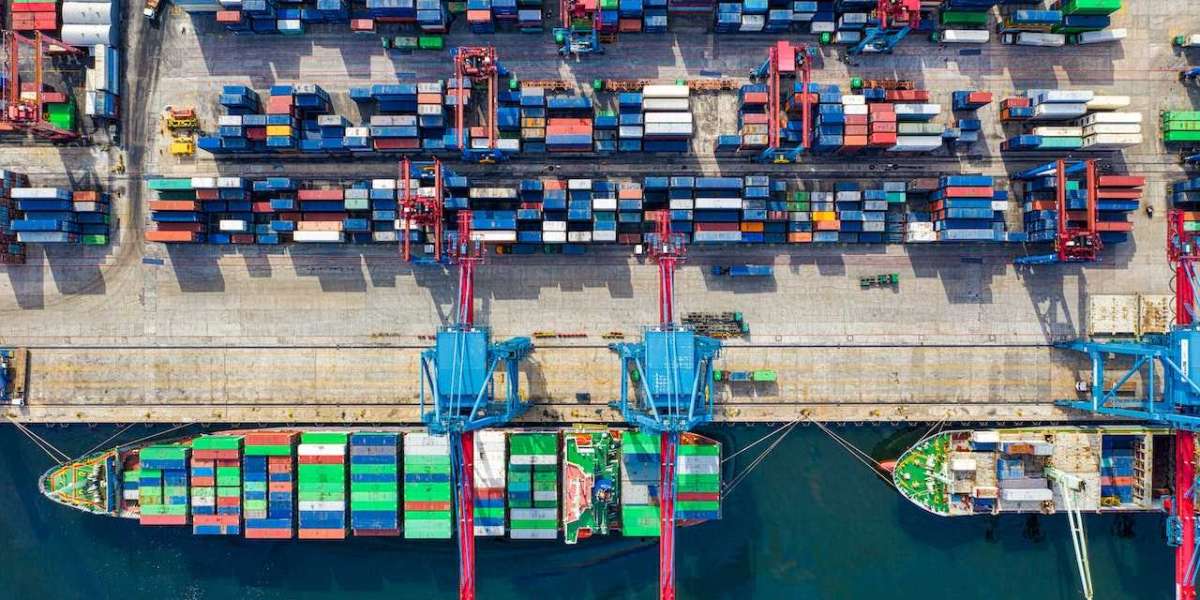As the world becomes increasingly aware of the environmental and social impacts of industrial activities, businesses are shifting their focus towards sustainability. Sustainable supply chains play a crucial role in addressing these concerns by integrating environmentally responsible and socially equitable practices. In the context of Malaysian industries, enhancing sustainability is imperative due to the country's growing industrial sector and its impact on the environment and society.
Table of Contents
- Environmental Responsibility in Sustainable Supply Chains
- Social Equity in Sustainable Supply Chains
- Case Studies: Successful Implementation of Sustainable Supply Chain Practices in Malaysia
- Challenges and Opportunities for Sustainable Supply Chains in Malaysia
- Conclusion
Environmental Responsibility in Sustainable Supply Chains
Malaysian industries face numerous environmental challenges, such as deforestation, pollution, and resource depletion. To combat these issues, sustainable sourcing and procurement practices are essential. Businesses can prioritize suppliers who adhere to sustainable practices, such as responsible resource extraction and reduced chemical usage. Additionally, optimizing transportation and logistics through route planning and the use of eco-friendly vehicles can help minimize carbon emissions.
Another crucial aspect of sustainable supply chains is green manufacturing. Implementing energy-efficient technologies, reducing waste generation, and adopting circular economy principles can significantly reduce the environmental impact of manufacturing processes. Proper waste management systems, including recycling and proper disposal, further contribute to a more sustainable approach.
Adopting environmentally responsible supply chains not only benefits the environment but also presents advantages for businesses. Companies can strengthen their brand image, attract environmentally-conscious consumers, and reduce costs in the long run through energy and resource efficiency.
Social Equity in Sustainable Supply Chains
Social equity is an important consideration in sustainable supply chains. Malaysian industries need to ensure fair labor practices, provide safe working conditions, and protect workers' rights. Ethical sourcing should be a priority, supporting suppliers who comply with fair trade standards and avoiding partnerships with those engaging in exploitative labor practices.
Promoting diversity and inclusivity within the supply chain is also crucial. Businesses should strive for fair representation of marginalized groups and create opportunities for their economic empowerment. This can include engaging local communities, providing training and education, and encouraging female entrepreneurship.
Supporting local communities directly contributes to social equity. Businesses can contribute to community development through initiatives such as building schools, supporting healthcare facilities, or creating employment opportunities. By actively engaging with communities, Malaysian industries can foster a more inclusive and sustainable society.
Case Studies: Successful Implementation of Sustainable Supply Chain Practices in Malaysia
Examining successful case studies helps understand how sustainable supply chain practices have been implemented in Malaysian industries.
Sustainable Supply Chain Initiatives in the Food and Beverage Industry
One case study focuses on the food and beverage industry, where sustainable supply chain initiatives have yielded positive results. Companies have prioritized sourcing local ingredients, reducing food waste, and implementing responsible packaging practices. This has not only reduced the industry's environmental impact but also promoted local agriculture and supported small-scale farmers.
A Textile Manufacturer Adopting Sustainable Sourcing and Fair Labor Practices
A textile manufacturer in Malaysia embraced sustainable practices by sourcing organic and recycled materials, prioritizing water and energy efficiency, and ensuring fair labor conditions. The company's commitment to sustainability has not only attracted environmentally-conscious customers but also improved the well-being of workers involved in the supply chain.
A Malaysian Automaker Integrating Green Manufacturing Techniques
A Malaysian automaker recognized the importance of green manufacturing and introduced environmentally-friendly practices into its production processes. By adopting energy-efficient technologies and implementing waste reduction methods, the automaker significantly reduced its carbon footprint. This case study demonstrates how sustainable supply chain practices can be successfully implemented in the manufacturing sector.
These case studies highlight not only the viability of implementing sustainable supply chains but also the numerous benefits they offer to businesses, society, and the environment.
Challenges and Opportunities for Sustainable Supply Chains in Malaysia
While sustainable supply chain practices are crucial, several challenges exist that impede their widespread adoption by Malaysian industries.
One of the primary barriers is the lack of awareness and understanding of sustainable practices. Businesses need to be educated about the potential benefits and the steps required to implement sustainable supply chains effectively. Additionally, cost and resource constraints can act as obstacles, as initial investments may be required to transition towards sustainability.
However, the Malaysian government has recognized the importance of sustainable practices and has implemented various regulations and policies to support businesses in their sustainability journey. By aligning with governmental initiatives, businesses can overcome challenges and benefit from increased support and opportunities.
Engaging an ESG consultant in Malaysia can also be a strategic move for businesses seeking to enhance their sustainability efforts. These experts are well-versed in local regulations, best practices, and can provide tailored guidance to help companies navigate the complexities of sustainable supply chain practices.
Collaboration and partnerships between different stakeholders, such as government organizations, non-governmental organizations (NGOs), and industry associations, can also pave the way for sustainable supply chains. Sharing knowledge, best practices, and resources can facilitate the adoption of sustainable practices on a broader scale.
Conclusion
Sustainable supply chain practices play a vital role in enhancing environmental responsibility and social equity in Malaysian industries. By implementing environmentally responsible sourcing, green manufacturing techniques, and efficient waste management, businesses can reduce their environmental impact and strengthen their brand image. Additionally, promoting fair labor practices, supporting local communities, and prioritizing diversity contribute to a more equitable society.
Although challenges exist, Malaysian industries have the opportunity to embrace sustainability through collaboration, government support, and knowledge sharing. By adopting and promoting sustainable supply chain practices, businesses can not only contribute to a greener and more inclusive future but also secure long-term success and resilience.







